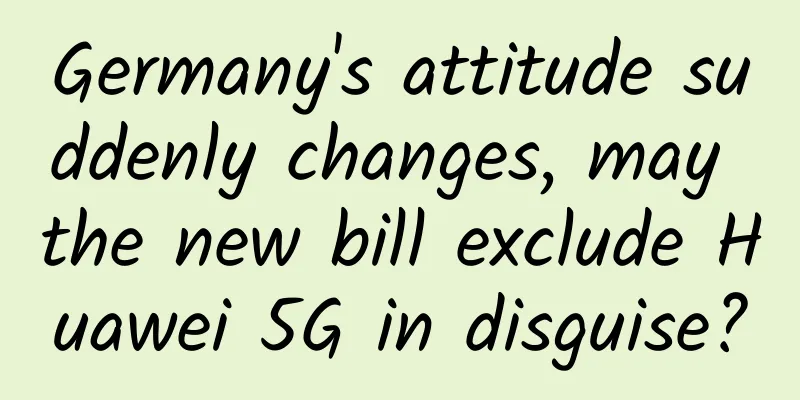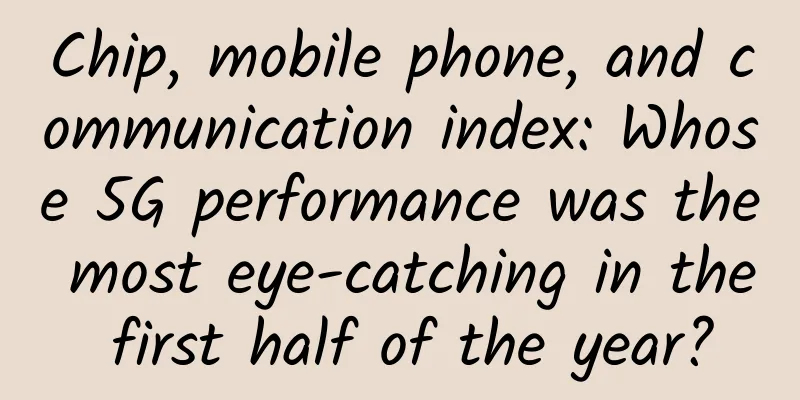Germany's attitude suddenly changes, may the new bill exclude Huawei 5G in disguise?

|
Since 5G was officially put into commercial use in 2019, the world's attention to 5G has been increasing day by day. Thanks to its technological advantages in the 5G field, Huawei has become the first choice for many countries to build 5G networks. According to data previously disclosed by Huawei itself, Huawei has won more than half of the 140 commercial 5G orders in 59 countries and regions around the world, far ahead of its competitors.
But some people favor and choose Huawei, and naturally some people hate and reject Huawei. In the past year, some countries, led by the United States, have banned Huawei 5G because they believe that Huawei 5G will endanger their national security. However, anyone with a discerning eye can see that the real reason they boycott, reject and even sanction Huawei 5G is that they feel Huawei's huge advantage in 5G and are afraid of losing 5G dominance. At that time, the European market, where Huawei had been deeply involved for many years, was divided into two camps. Countries including the United Kingdom and France chose to stand in the same line with the United States, abandoning their cooperation with Huawei for more than a decade and banning Huawei 5G; while some countries, represented by Germany, publicly expressed their support for Huawei. The German government has repeatedly stated its fair position on 5G and stated that it would not exclude Huawei. The firm support of a series of European countries such as Germany has undoubtedly helped Huawei's expansion and development in the European market. However, according to the latest news, the attitude of this once "die-hard" may have a 180-degree turn recently. It is reported that Germany has recently passed a more stringent 5G security legislation, which may exclude Huawei from the country's 5G construction in disguise, thereby blocking Huawei's 5G progress in Europe. It is reported that the new bill will restrict "unreliable" 5G technology suppliers and require local telecom operators to inform the German government when signing contracts for key 5G components. In other words, the new bill gives the German government greater power to block 5G contract transactions. Relevant politicians explained that although they did not directly name Huawei, the new bill is equivalent to removing Huawei from Germany's 5G network construction. So, if Germany has changed from supporting Huawei to rejecting Huawei, as these politicians understand, what impact will it have on both sides? First of all, for the development of 5G in Germany, it will definitely have more adverse effects. After all, according to Deutsche Telekom and Vodafone, about 50% of the antenna equipment in the 5G networks currently under construction comes from Huawei, covering a population of about 40 million. Once Huawei is excluded, the German government will need to spend a lot of financial resources to replace Huawei equipment. Preliminary calculations show that the loss will reach billions of euros, and the 5G construction will also lag behind other countries. In addition, Huawei has been working in the German communications field for many years. After Germany excluded Huawei, it is not easy to find a manufacturer to replace Huawei in the short term. Even if it finds one, the cost may be much higher than Huawei. This will not only delay the time and progress of Germany's 5G construction and development, but also affect the financial situation of the German government. Of course, the more direct impact is that it will affect the communication services of the vast majority of the people in the country. As for Huawei, there will certainly be an impact, but it may not be that big. The rejection of its own 5G by another European power has undoubtedly hindered its expansion into the European market. But compared with last year, Huawei has improved its acceptance and tolerance because it has experienced the blows of many European countries. At the same time, Huawei still has huge technical patent advantages and a main domestic battlefield, and will not fall easily. More importantly, 5G development is no longer Huawei's only business at this stage. Recently, Huawei has expanded its business in various fields such as automobiles, cloud computing, and software, and its business model has become increasingly rich and three-dimensional. At the same time, Huawei has also begun to charge 5G patent fees, which not only ensures revenue survival, but also transforms 5G's leading advantages. Development is no longer affected by external factors. Based on this, Germany's move may ultimately only harm others and itself, and it will be a thankless task! |
<<: The so-called ICMP is nothing more than a general and soldiers
>>: Software: Share 9 practical computer software, worth a look
Recommend
Ruijie Networks launches Cloud Office 4.0 solution as an alternative to commercial PCs
On June 12, Ruijie Networks held a media conferen...
2018 Yunnan-Huawei Software Industry Summit was held on December 20
The 2018 Yunnan-Huawei Software Industry Summit w...
Krypt: $11.11/half year-2G/50GB/2TB/Los Angeles & San Jose
The Double 11 discount of Krypt's ION platfor...
BGPTO: Singapore dedicated server $49/month, E3-1230v3/16GB/480G SSD/10M (CN2)
BGPTO currently offers a special discount code fo...
People's Daily pays attention to the speed limit of network disk: Let the speed limit of network disk be increased
On January 21, the People's Daily published a...
What is Layer 4 and Layer 7 load balancing? What is the difference between them?
In the early days of the website, we generally us...
Four waves, closing the TCP connection
[[428968]] This article is reprinted from the WeC...
The 7 most in-demand tech jobs of 2018 — and how to hire them
From data scientists to data security experts, th...
Don’t just focus on SD-WAN, pay attention to IPv6
The Internet of Things (IoT) is fundamentally cha...
Mixed ownership reform and restructuring: what are the three major operators doing?
The most eye-catching thing in the communications...
Advantages of IPv6: Faster connections, richer data
The advantages of IPv6 are numerous, including fa...
Ranking of JavaScript open source projects in September
[[428048]] The ranking of the most popular JavaSc...
V5.NET March Promotion: Hong Kong CN2 server limited 30% off, dual E5-2630L/32GB/1T SSD/10M monthly payment 625 yuan
V5.NET's promotional models this month are th...
Yecao Cloud Labor Day Promotion: Hong Kong BGP line VPS special price from 88 yuan per year, Hong Kong dedicated server from 199 yuan/month
Yecaoyun has already started the Labor Day promot...






![[6.18] iOVZ VPS 20% off monthly payment and 30% off annual payment, Hong Kong VPS gets double memory](/upload/images/67cabe6619e38.webp)


